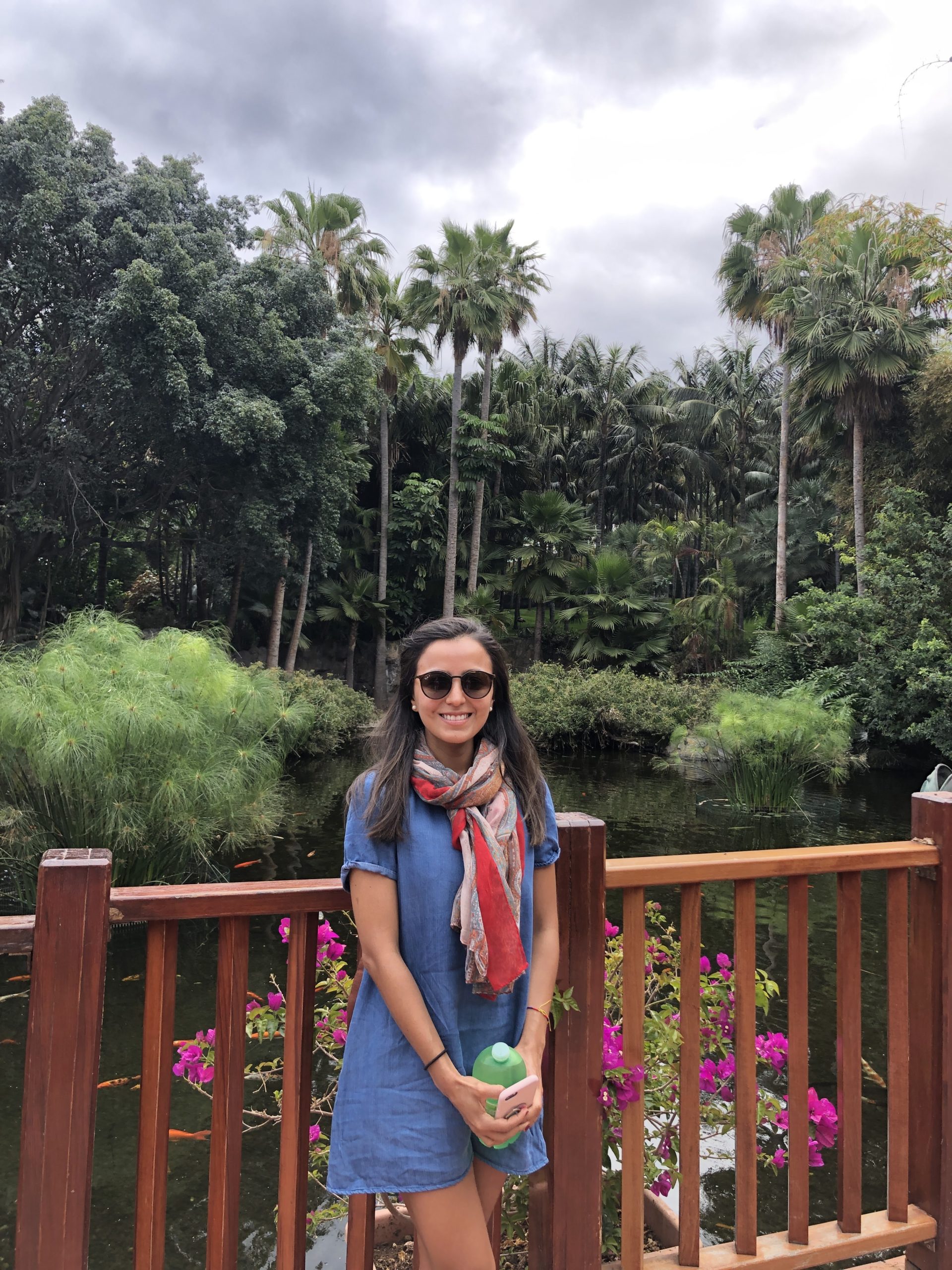Journey with Carolin as she shares her experience in transferring her dentistry degree from Colombia to the UK. She sheds light on some of the unique challenges and the intricate steps in achieving a professional recognition in a new country.
Hi, today is Saturday the 8th of May 2020, and I’m here to tell you a little about the journey I took to transfer my degree to the UK. My degree is in Dentistry from a university in Colombia, this meant there were many steps I had to follow in order to complete my goal of having an equivalent degree in the UK. I must say that my journey may not be the same for others, as the UK has different requirements according to the type of degree you have, and where it’s from. If you have a degree in dentistry I’d recommend you check the following questionnaire to find out extra information on the individual process you need to follow: https://www.gdc-uk.org/registration/join-the-register/route-to-registration.
The first step I had to follow was to request a breakdown of my Colombian degree’s syllabus, with the grades I got in each module, as well as my primary dental degree certificate. As in Colombia our native language is Spanish, all these documents needed to be translated into English- nb all official translations need to be done by a certified translator. Once the translation was ready, the documents had to be verified and stamped by the Colombian National Ministry of Education and International Relationships. The mentioned documents, translations and special stamps were all required for this process, and when I had them ready I posted them off to UK NARIC (https://www.naric.org.uk/naric/), which is a national agency for the recognition and comparison of international qualifications and skills. Your documents need to be accompanied by a cover letter explaining why you would like to work in the UK. Once they give you their verdict (in my case they posted back a statement saying that my degree was equivalent to a British Bachelor in Dentistry), you keep this statement so you can submit it together with all the other documents mentioned, plus your application forms to the relevant council that regulates your profession, for me it was General Dental Council (GDC), https://www.gdc-uk.org/.
This is where it could start to get confusing but bear with me! There is an extra step between the UK NARIC Statement and the GDC application. The reason I’m making a different paragraph for this is because it may or may not apply to you, it all depends on the language you studied in: if it was English, YAY! you skip this step and go directly to your relevant council, but if not- like me, you will need to do an English test for study, migration or work purposes called IELTS (https://www.ielts.org/). IELTS is not a “pass or fail” type of exam, but an exam that will tell you the level of English you have. In dentistry you need an ACADEMIC level 7 or above.
The next step is for you to register with the GDC and plan to sit the exams. You could do this from start to end while you are still living outside the UK. However, bare in mind that when you come to sit the exams you will need a visa permit.
The UK does not recognise medical degrees from South America- I believe it only accepts EEA qualifications, plus other special cases referred as “Exempt Person” (check on the Route to Registration, link on the first paragraph). So your next step is to sit an exam called ORE Overseas Registration Exam. This is a statutory exam that will test all your knowledge, social and clinical skills in dentistry, https://www.gdc-uk.org/registration/overseas-registration-exam/applying-for-ore
The ORE is a 2 part exam. Inpart 1, you will sit 2 exams in one, referred to as Paper A and B, this is done on two consecutive days; you need to pass both “papers” in order to have an overall pass (for each paper, the normalised pass mark is 50%). The exam is held at King’s College London twice a year, generally in April and August, the cost currently is £806. Each “paper” is 3 hours long, consisting of about 200 to 250 multiple-choice questions (MCQs) in the form of extended matching questions (EMQs) and single best answer questions (SBAs). Paper A covers clinically applied dental science and clinically applied human disease. Paper B covers aspects of clinical dentistry, including law and ethics and health and safety. Here is the reading list: https://www.gdc-uk.org/docs/default-source/overseas-registration-exam-faqs/ore-reading-l ist.pdf?sfvrsn=690b510a_2
The exams are not easy as they require a disciplined preparation of a minimum of 2-3 months of daily revision (or longer according to your knowledge in basic sciences and clinical experience). There are no official study centres for this, but there are several ex- ORE candidates who teach the exact content of the exams. I only know one person who is extremely experienced and knowledgeable in these specific exams, and I highly recommend her to anyone who is preparing to sit the exams, Dr Ebtisam Elhamalawy (https://www.ea-dental.com/). The other option is to prepare for the exam on your own following the reading list. This is the route I took, because I wanted to save my pennies for the Part 2 exam, however, the stress and pressure on myself was unbelievably high, therefore I wish I had done differently. The courses are focused on what you need to know, saving you time in trying to figure out how you will organise all the content (which is HUGE), and how you will fathom all the information. Nonetheless, I passed by preparing on my own, so you can too! It will only be a touch more stressful. There are several study groups on Facebook that you can also search and get help from.
Part 2 is a different story. It has 4 components, the first is Objective Structured Clinical Examination (OSCES), second is Dental Manikin (DM), third is Diagnosis and Treatment Planning Exercise (DTP), and lastly a Medical Emergencies Exercise (ME), (https://www.gdc-uk.org/registration/overseas-registration-exam/ore-part-2). It takes place on 3 consecutive days, at The Royal College of Emergency Medicine, UCL Eastman Dental Institute, and the Royal National ENT and Eastman Dental Hospitals, the current cost is £2,929. As with Part 1, you must pass each component in order to have an overall pass. The passing rate however, is not well understood as you will not pass with just a 50 or 60% mark. Each component has different passing marks making it difficult to understand how the GDC marks them and decides how many candidates pass or fail.
Having said the above, Part 2 is a more practical series of exams, where your individual skills may give you advantage over the other candidates. Good clinical skills make a huge difference as Dental Manikin tends to be the component most people fail; having confidence and being able to concentrate under pressure will also help you a lot when you come to face the OSCES, which are a total of 16 clinical scenarios in which you interact with several well prepared actors behaving as your patient, or with an examiner who is an experienced dentist. Although it is a more practical exam, the reading list provided by the GDC for this part is the same as for Part 1, so understanding what they want to see from you
at this stage is key. In my view this part of the exam is not fair as the GDC is looking for specific behaviours – some can be quite subjective. The good thing about it is that the clinical scenarios and all the other exercises tend to be slightly repetitive, therefore preparatory courses will give a very good insight of the exam you are to face as well as put you in touch with potential study partners to practice all the components with. I recommend doing this daily for a MINIMUM of one month. In my case I revised for 3.5 months. The first 2.5 months I was still working full time and on the last I focused entirely on the exam, revising a total of 10 or more hours a day.
I know it’s a long journey with several steps to follow but all worth it! My advice is do not become overwhelmed with all the information and thinking about what comes next, just take one step at the time but do reflect on the process as a whole so you know what’s required and can plan for it.
Lastly if you are allowed to work in the UK, you have the option to enrol in a Dental Nursing course in any college while you get ready for the exams. With just the enrolling documents you can start working straight away as a nurse or practice manager- depending on your experience. These courses are widely available, you can even do them through distance learning or in the classroom. The latter option is usually a couple of days a week for 3 hours or one full day. With regards to payment, they have finance options and other flexible payment plans- if I recall well, I paid around£1400 for mine. Working at the same time as preparing for the exams offers you the possibility of building up your own professional network, as well as getting used to the UK’s dental approach, and of course the possibility of saving for the exams’ expenses.
I wish you all the best, and if you require further information regarding your own journey, I will be happy to help you. Contact me through the email on the website.
Thank you,
Carolin Garcia







